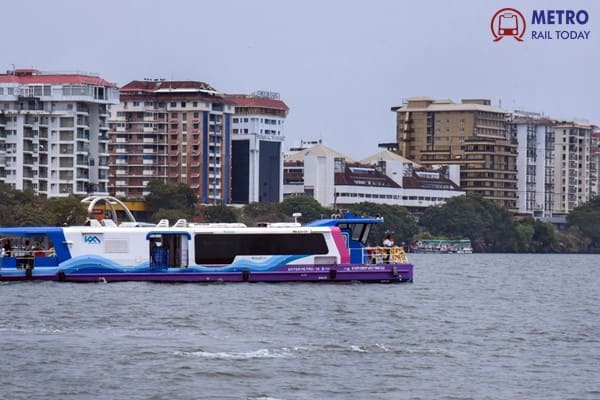 Kochi Metro bags contract to prepare DPR for Mumbai Water Metro Project
Kochi Metro bags contract to prepare DPR for Mumbai Water Metro Project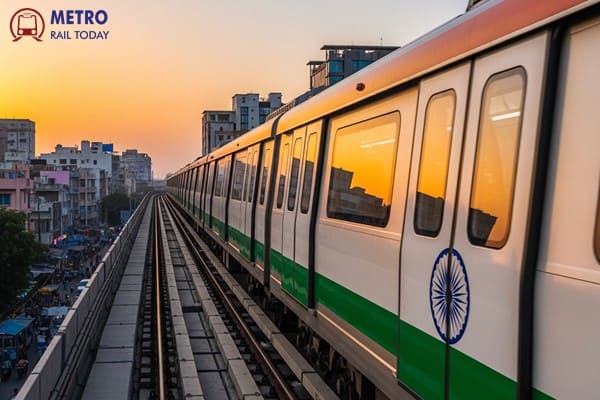 Six Firms Bid for first Civil Work Contract of Thane Metro Rail Project
Six Firms Bid for first Civil Work Contract of Thane Metro Rail Project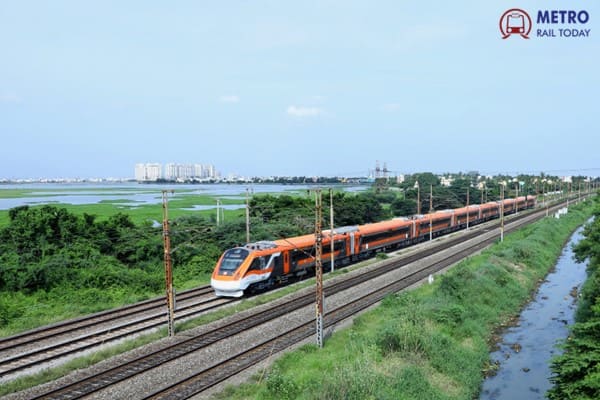 Kineco Group acquires UK-Based TRB Lightweight Structures to bolster Global Rail Interiors Business
Kineco Group acquires UK-Based TRB Lightweight Structures to bolster Global Rail Interiors Business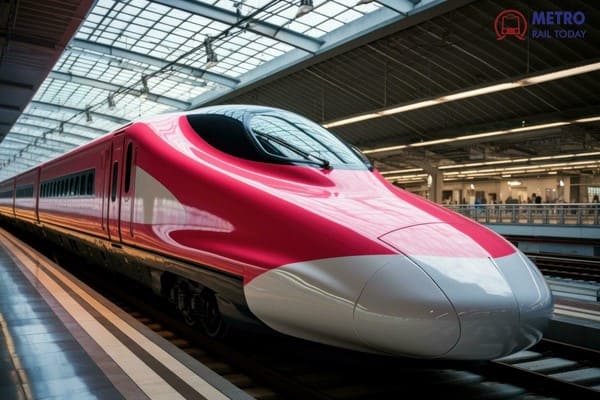 BEML partners with Knorr-Bremse to equip India’s First High-Speed Trains
BEML partners with Knorr-Bremse to equip India’s First High-Speed Trains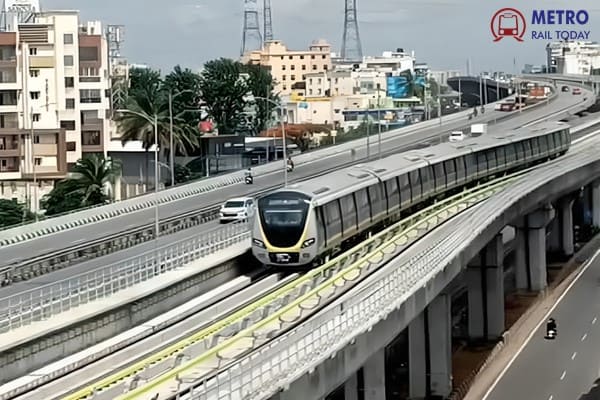 Bangalore Metro likely to procure 6 Additional Trains from BEML to ease Yellow Line congestion
Bangalore Metro likely to procure 6 Additional Trains from BEML to ease Yellow Line congestion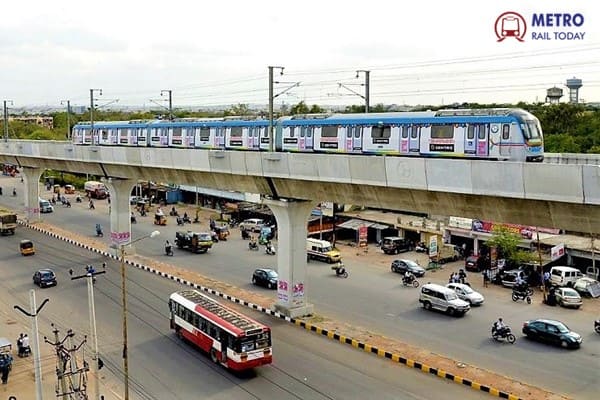 L&T proposes Hyderabad Metro Phase 1 handover to Telangana Govt amid Phase 2 expansion plans
L&T proposes Hyderabad Metro Phase 1 handover to Telangana Govt amid Phase 2 expansion plans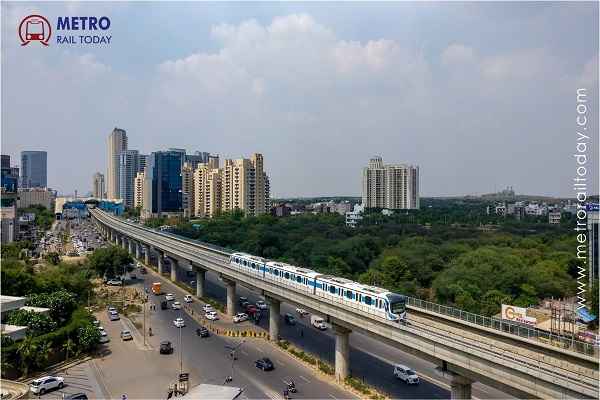 HMRTC to award DPR Contract for Sohna Road and Sheetla Mata Road Metro Corridors in Gurugram
HMRTC to award DPR Contract for Sohna Road and Sheetla Mata Road Metro Corridors in Gurugram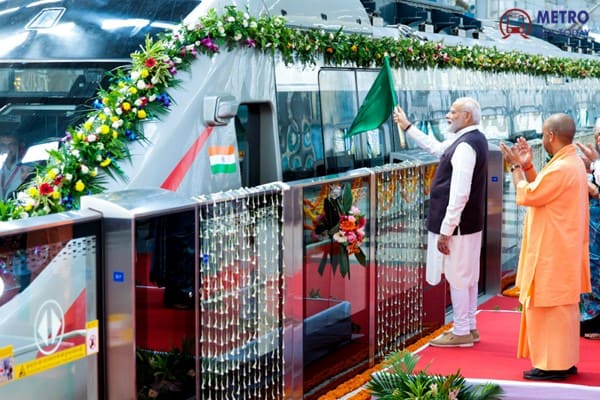 Namo Bharat Transforms NCR Mobility, Puts Uttar Pradesh on Track for High-Speed Growth
Namo Bharat Transforms NCR Mobility, Puts Uttar Pradesh on Track for High-Speed Growth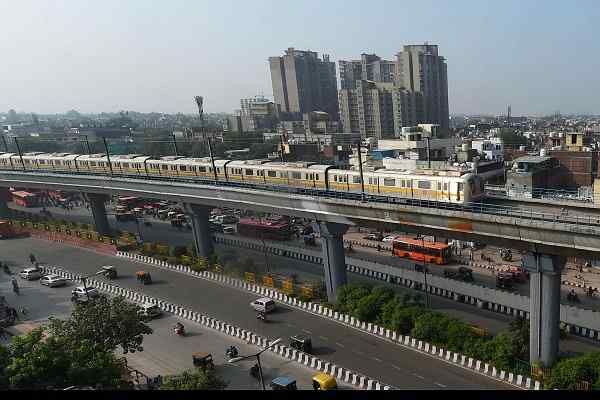 Alstom bags €42 Million, 10-Year Maintenance Contract from Delhi Metro Rail Corporation
Alstom bags €42 Million, 10-Year Maintenance Contract from Delhi Metro Rail Corporation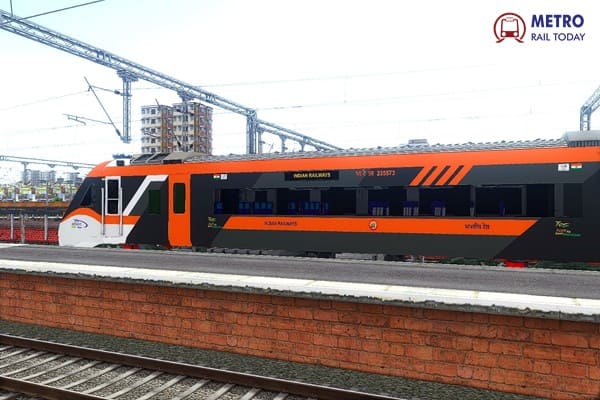 MRVC floats ₹21,000 crore Tender for 2,856 Vande Metro Suburban Coaches for Mumbai Region
MRVC floats ₹21,000 crore Tender for 2,856 Vande Metro Suburban Coaches for Mumbai Region
Enhancing gender diversity in the Metro Rail Systems for creating a more inclusive future
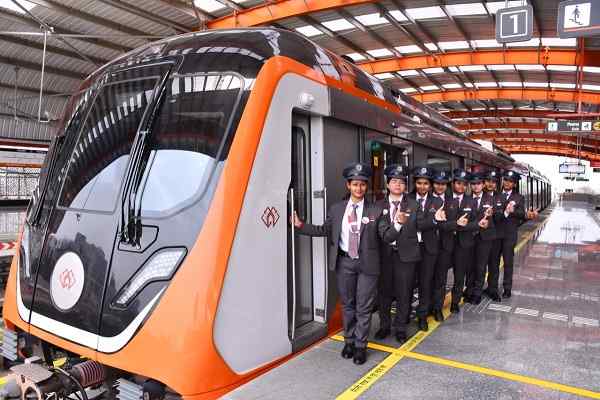
In recent years, the issue of gender balance within the transport sector, particularly in the context of metro systems, has garnered increased attention and recognition. As a pivotal component of urban mobility, metro systems are vital in facilitating efficient and sustainable transportation for millions of commuters daily. However, the representation of women in the metro transport workforce, from operational staff to leadership positions, continues to be disproportionately low, hindering the industry's potential for innovation and progress. The achievement of gender balance in the transport sector has emerged as an imperative goal for fostering a diverse and inclusive environment. Overcoming the longstanding challenges faced by women in the industry is not only a matter of social equity but also a strategic necessity to harness the full spectrum of talent available.
It aims to delve into the critical need for gender balance within the transport sector, with a particular emphasis on metro systems. By examining the challenges and barriers women encounter in pursuing careers in this field, we will gain a comprehensive understanding of the current landscape. Additionally, we will explore the range of initiatives and strategies being implemented globally to promote gender equality, inclusivity, and equal opportunities within metro transportation networks. As we navigate toward a future that embraces progress and innovation, achieving gender balance within the transport sector remains a shared responsibility. By empowering women and promoting an environment that fosters equal opportunities, we can unlock the industry's untapped potential and redefine the trajectory of urban transportation. Let us embark on this journey to create a more equitable, inclusive, and thriving transport sector, where the contributions of all individuals are valued, regardless of gender.
The Imperative for Gender Balance in the Transport Sector (especially Metro): Driving Progress and Inclusivity
The transportation sector, especially metro systems, plays a crucial role in shaping modern urban mobility. However, achieving true progress and sustainability in this industry hinges on the urgent need to address gender imbalances. The underrepresentation of women in the transport sector poses significant challenges and limits its potential for innovation and growth. This highlights the key reasons why gender balance is imperative in the transport sector, with a specific focus on metro systems, and explores the numerous benefits that stem from fostering a more inclusive workforce.
- Enhancing Innovation and Creativity
- Improving Customer Experience
- Economic Growth and Sustainability
- Women's Safety and Security
- Leadership and Role Model Representation
- Fulfilling Social Equity and Responsibility
Gender diversity within the transport sector, particularly in the context of metro systems, fosters a broader range of perspectives, experiences, and ideas. When women are equally represented at all levels, they bring unique viewpoints that lead to innovative problem-solving and decision-making. Embracing diversity ignites a culture of creativity, allowing the industry to adapt and thrive in an ever-evolving urban landscape. Transport systems are designed to serve diverse communities. A gender-balanced workforce can better understand and respond to the unique needs and preferences of all passengers, resulting in improved customer experiences. A more inclusive and empathetic approach to service delivery enhances satisfaction levels and encourages greater public trust in metro systems. Gender balance in the transport sector contributes to economic growth and sustainability. With more women’s actively participating in this transport industry, productivity and efficiency increase, enabling metro systems to optimize their operations. Moreover, a diverse workforce attracts a wider talent pool, reducing skills gaps and contributing to a more resilient and future-ready transport sector.
Gender balance is essential to ensuring the safety and security of female passengers and employees. A diverse workforce helps identify and address safety concerns more effectively, creating public transport environments that are inclusive, safe, and conducive for everyone to utilize with confidence. Promoting gender balance within the transport sector, particularly in leadership roles, provides aspiring women with visible role models. By breaking traditional gender norms, more women are encouraged to pursue careers in transportation and envision themselves as future leaders within the industry. This empowers the next generation of female professionals, promoting a virtuous cycle of progress. As a critical aspect of social responsibility, achieving gender balance in the transport sector aligns with broader efforts towards equity and inclusivity. By dismantling gender barriers, we can create a more just and equitable society that values the contributions of all individuals regardless of gender, fostering a sense of belonging and empowerment for everyone.
Challenges in Achieving Gender Balance
The transport sector, particularly metro systems, continues to face significant challenges in achieving gender balance and promoting equal representation of women in various roles. These challenges are deeply rooted in societal norms, cultural perceptions, and historical biases that have shaped the industry's workforce composition. Addressing these challenges is crucial for fostering a more inclusive and progressive transport sector. The key challenges include:
- Underrepresentation in Technical and Operational Roles
- Lack of Female Leadership
- Gender Pay Gap
- Safety and Harassment Concerns
- Unconscious Bias and Workplace Culture
- Limited Access to Training and Skill Development
- Work-Life Balance Challenges
- Traditional Gender Norms and Stereotypes
- Lack of Gender-Inclusive Policies
- Limited Networking and Professional Support
Women are often underrepresented in technical and operational roles within metro systems, such as train operators, engineers, and maintenance personnel. Cultural stereotypes and biases can deter women from pursuing careers in these fields, limiting the potential for gender diversity within the sector. The scarcity of women in leadership positions within metro systems creates a lack of visible role models for aspiring female professionals. The absence of female leaders may impede women's career aspirations and hinder their access to mentorship and support. The gender pay gap persists within the transport sector, including metro systems, with women often earning less than their male counterparts for similar roles. This disparity can discourage women from entering or staying in the industry and may contribute to the unequal representation of women in senior positions.
Women may face safety concerns and incidents of harassment while using or working in metro systems. These safety issues can be significant barriers to women's mobility, impacting their willingness to travel or pursue careers in the transport sector. Unconscious bias within metro system organizations can influence recruitment, promotion, and decision-making processes, inadvertently favouring male candidates and perpetuating gender imbalances. An unsupportive or male-centric workplace culture can also contribute to women feeling excluded or undervalued. Women may encounter limited access to training and skill development opportunities required for career advancement within the transport sector. This lack of investment in women's professional growth can hinder their progress in technical and leadership roles.
The transport sector, including metro systems, often involves irregular working hours and demanding schedules. Balancing work commitments with family responsibilities can be particularly challenging for women, impacting their career choices and advancement prospects. Societal expectations and traditional gender norms may discourage women from pursuing careers in the transport sector, as certain roles are often perceived as more suitable for men. The absence of gender-inclusive policies and practices within metro system organizations can contribute to unequal opportunities and hinder efforts to promote gender balance and diversity. Women in the transport sector may face limited networking opportunities and professional support systems, which can impact their access to mentorship, career guidance, and advancement prospects.
Addressing these challenges requires a holistic approach, involving policy changes, cultural shifts, and active engagement from stakeholders across the transport sector. By proactively promoting gender diversity, creating inclusive work environments, and offering equal opportunities for women, the transport sector can break down barriers and build a future where women thrive and make significant contributions to the industry's success.
Considering women's perspectives during the design and operation of transportation systems could lead to a 29% decrease in energy use and emissions from passenger transport. Additionally, if men adopted travel patterns similar to those of women today, emissions could be reduced by 18%. Moreover, implementing gender-responsive and inclusive designs for Metro railway stations resulted in a remarkable return on investment of 2.4:1. (UITP)
Addressing the Gender Imbalance
Metro authorities and stakeholders are increasingly recognizing the significance of achieving gender balance within their workforce. Initiatives aimed at fostering an inclusive and equitable environment are being implemented across various metro systems worldwide. They have to make on the following
- Diversity and Inclusion Policies
- Empowering Women in Technical Roles
- Safe and Inclusive Workspaces
- Awareness Campaigns
- Work-Life Balance Support
Metro authorities are formulating and implementing comprehensive diversity and inclusion policies that explicitly recognize the need for gender balance within their organizations. These policies encompass recruitment, promotion, and retention strategies that promote diversity and equal opportunities for all employees. Metro systems are proactively encouraging women to pursue careers in technical fields by providing targeted training, scholarships, and mentorship programs. By breaking down gender barriers in traditionally male-dominated roles, these efforts aim to increase the representation of women in operational positions.
Ensuring a safe and inclusive work environment is paramount to attract and retain female talent within the metro sector. Measures such as gender-sensitive training, security protocols, and reporting mechanisms for harassment and discrimination are being implemented to foster a sense of security for all employees. Metro authorities are conducting public awareness campaigns to challenge societal stereotypes and encourage women to consider careers in the transport sector. These campaigns play a crucial role in dismantling gender biases and promoting the potential for female leadership within the industry. Recognizing the importance of work-life balance, metro systems are offering flexible work arrangements and family-friendly policies. These initiatives assist in retaining women employees and enhancing overall job satisfaction.
The five Key Barriers to Women's Ability to Enter and Flourish in the Transport Sector, Specifically in Metro Rail Systems are detailed below:-
- Perception of Male Dominance
- Limited Female Representation in Leadership Roles
- Inadequate Recruitment and Promotion Practices
- Hostile Workplace Culture
- Lack of Gender-Inclusive Policies
The perception of metro rail systems as male-dominated environments perpetuates stereotypes that certain roles are more suitable for men. This perception discourages women from pursuing careers in technical and operational positions within the sector, limiting their representation and progression. The lack of women in leadership positions within metro rail systems creates a dearth of visible role models for aspiring female professionals. The absence of female leaders can deter women from envisioning themselves in top management positions and hinder their career advancement aspirations. Biased recruitment and promotion practices may unintentionally favour male candidates, leading to a lack of gender diversity in the metro rail workforce. These practices hinder women's access to job opportunities and impede their professional growth within the sector.
A hostile or unsupportive workplace culture within metro rail systems can create an uncomfortable and challenging environment for women. Instances of harassment, discrimination, and micro-aggressions may deter women from joining or remaining in the industry. Absence of gender-inclusive policies and work arrangements, such as flexible schedules and parental leave options, can make it difficult for women to balance work and family responsibilities. This disparity may force women to choose between their careers and personal lives, leading to underrepresentation in the sector.
The five Entry Points for Action in Metro Rail Systems:
- Diversity and Inclusion Initiatives
- Leadership Development Programs
- Gender Sensitization Training
- Mentorship and Networking Opportunities
- Work-Life Balance Support
Metro rail authorities should implement comprehensive diversity and inclusion strategies, setting measurable targets for increasing female representation across all levels. Establishing a diverse talent pipeline and fostering an inclusive culture will attract and retain women in the sector. Creating targeted leadership development programs for women can nurture their leadership skills and provide clear pathways to management positions. By investing in female talent, metro rail systems can foster a new generation of capable leaders. Conducting gender sensitization and awareness training for all employees within metro rail systems can help challenge biases and promote a more respectful and inclusive work environment.
Establishing mentorship programs and networking platforms that connect women with experienced professionals in the sector can provide invaluable guidance, support, and career advice. Introducing flexible work arrangements, family-friendly policies, and childcare support can enable women to achieve a better work-life balance, encouraging their long-term commitment to careers in metro rail systems.
Is there a balance between genders in Indian Metro Rail Systems:
Achieving a balance between genders in Indian Metro Rail Systems remains a challenge. Similar to the broader transport sector, there are gender disparities in representation, safety, and accessibility within metro rail systems. While there have been efforts to address these issues, significant imbalances persist. Here are key points to consider regarding the gender balance in Indian Metro Rail Systems:
Women are often underrepresented in technical roles within Indian Metro Rail Systems, such as train operators, engineers, and maintenance personnel. Cultural stereotypes and societal norms can contribute to limited female participation in these fields. Safety is a significant concern for women passengers using metro rail systems in India. Instances of harassment and inadequate safety measures can hinder women's confidence in using these services, impacting their mobility and travel choices. Some metro rail systems lack gender-sensitive infrastructure, such as women-only compartments or designated waiting areas. The absence of such inclusive spaces may contribute to safety concerns for women passengers. Women's representation in leadership positions within Indian Metro Rail Systems is limited. The lack of female leaders may hinder the implementation of gender-sensitive policies and initiatives within the sector.
The workforce in Indian Metro Rail Systems may be predominantly male-dominated, leading to potential gender biases and disparities in hiring and promotion practices. Cultural norms and gender roles may influence women's travel patterns and modes of transport. Women may face pressure to travel during specific hours or avoid certain modes of transport due to safety concerns. The implementation of gender-inclusive policies, such as reserved seats for women, may vary across different metro rail systems in India, leading to inconsistency in promoting women's safety and comfort. Public awareness campaigns and training initiatives on gender sensitivity and safety may not be universally implemented, impacting passengers' and employees' awareness and understanding of gender-related issues.
Addressing gender and mobility concerns constitutes a pivotal aspect of transitioning towards inclusive and eco-friendly societies. It is imperative for the public transport sector to align with the diverse needs of our communities, and the forthcoming efforts will focus on integrating gender considerations into public transport projects, fostering a more inclusive approach.
Key takes away
Focusing on women in the workforce of Indian Metro Rail Systems is a critical and strategic necessity for a variety of compelling reasons. As a professional in the transportation sector, I emphasize the importance of promoting gender diversity and inclusivity within the workforce to achieve better outcomes, foster innovation, and create a more equitable and sustainable metro rail industry. Here are key reasons why this focus on women is paramount:
- Diversity and Inclusivity: Embracing gender diversity in the workforce ensures that the metro rail sector benefits from a wide range of perspectives, experiences, and talents. By including women in the workforce, we create a more inclusive and representative environment that enriches decision-making and problem-solving processes.
- Addressing Skills Gap: Encouraging women's participation in the metro rail workforce helps address potential skills gaps. Many women possess valuable expertise and qualifications that can contribute to the sector's growth and success.
- Tapping into Untapped Talent: Historically, the transportation industry, including metro rail systems, has been male-dominated. By promoting women's participation, we unlock a vast pool of underutilized talent, thus enhancing the sector's overall capabilities.
- Enhancing Customer Experience: Women constitute a significant portion of metro rail users. Having women in the workforce enables a better understanding of the needs, preferences, and safety concerns of female passengers, leading to improved services and customer experiences.
- Promoting Gender Equality: By providing equal opportunities for women in the workforce, we challenge gender stereotypes and promote gender equality within the metro rail industry. This inclusive approach is essential for fostering a fair and empowering work environment.
- Driving Innovation: A diverse workforce fosters innovation and creativity. Women in the workforce bring unique perspectives and problem-solving approaches that can lead to enhanced operational efficiency and customer-oriented solutions.
- Empowering Women in the Sector: Promoting women's participation in the workforce empowers them to pursue careers in non-traditional fields, challenging societal norms and inspiring the next generation of female professionals.
- Supporting Economic Growth: Studies have shown that gender-diverse organizations tend to be more successful and economically viable. A diverse workforce can contribute to increased productivity and overall financial performance of Indian Metro Rail Systems.
- Tackling Safety Concerns: Women's participation in the workforce can positively impact safety and security measures within metro rail systems. By including more women in roles related to safety and operations, we can enhance the overall safety and comfort of passengers.
- Fulfilling Sustainable Development Goals: Prioritizing gender diversity aligns with the United Nations' Sustainable Development Goals, particularly SDG 5 (Gender Equality) and SDG 8 (Decent Work and Economic Growth). Focusing on women in the workforce contributes to achieving these global objectives.
Conclusion
In conclusion, focusing on women in the workforce of Indian Metro Rail Systems is not only an ethical imperative but also a strategic approach for driving progress and success. By promoting gender diversity, empowering women, and fostering an inclusive work environment, the metro rail industry can unlock the full potential of its workforce and create a more resilient and customer-focused transportation system. Emphasizing women's participation is a key step towards building a stronger, more sustainable, and socially responsible metro rail sector in India.




